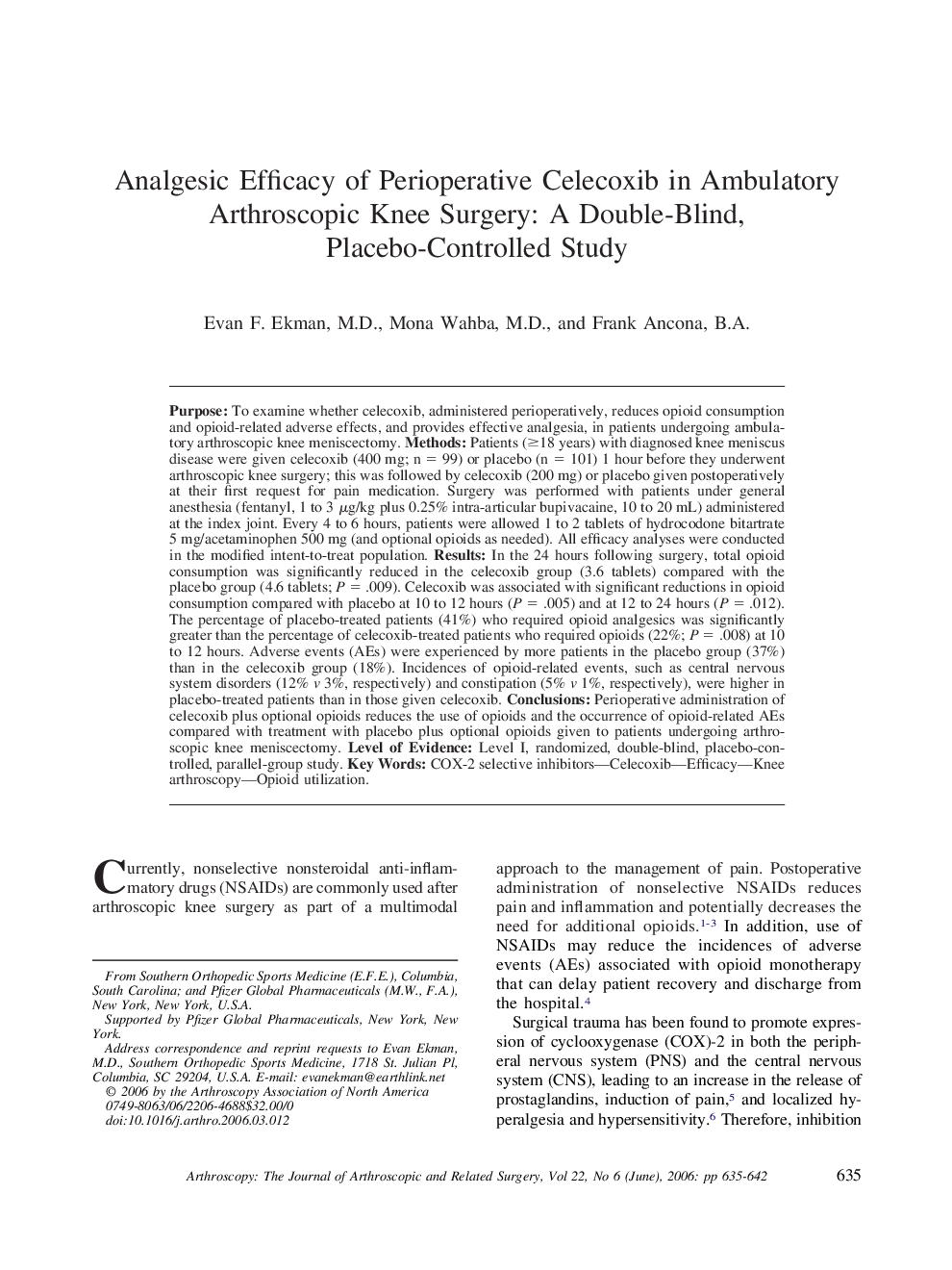| Article ID | Journal | Published Year | Pages | File Type |
|---|---|---|---|---|
| 4047745 | Arthroscopy: The Journal of Arthroscopic & Related Surgery | 2006 | 8 Pages |
Purpose: To examine whether celecoxib, administered perioperatively, reduces opioid consumption and opioid-related adverse effects, and provides effective analgesia, in patients undergoing ambulatory arthroscopic knee meniscectomy. Methods: Patients (≥18 years) with diagnosed knee meniscus disease were given celecoxib (400 mg; n = 99) or placebo (n = 101) 1 hour before they underwent arthroscopic knee surgery; this was followed by celecoxib (200 mg) or placebo given postoperatively at their first request for pain medication. Surgery was performed with patients under general anesthesia (fentanyl, 1 to 3 μg/kg plus 0.25% intra-articular bupivacaine, 10 to 20 mL) administered at the index joint. Every 4 to 6 hours, patients were allowed 1 to 2 tablets of hydrocodone bitartrate 5 mg/acetaminophen 500 mg (and optional opioids as needed). All efficacy analyses were conducted in the modified intent-to-treat population. Results: In the 24 hours following surgery, total opioid consumption was significantly reduced in the celecoxib group (3.6 tablets) compared with the placebo group (4.6 tablets; P = .009). Celecoxib was associated with significant reductions in opioid consumption compared with placebo at 10 to 12 hours (P = .005) and at 12 to 24 hours (P = .012). The percentage of placebo-treated patients (41%) who required opioid analgesics was significantly greater than the percentage of celecoxib-treated patients who required opioids (22%; P = .008) at 10 to 12 hours. Adverse events (AEs) were experienced by more patients in the placebo group (37%) than in the celecoxib group (18%). Incidences of opioid-related events, such as central nervous system disorders (12% v 3%, respectively) and constipation (5% v 1%, respectively), were higher in placebo-treated patients than in those given celecoxib. Conclusions: Perioperative administration of celecoxib plus optional opioids reduces the use of opioids and the occurrence of opioid-related AEs compared with treatment with placebo plus optional opioids given to patients undergoing arthroscopic knee meniscectomy. Level of Evidence: Level I, randomized, double-blind, placebo-controlled, parallel-group study.
